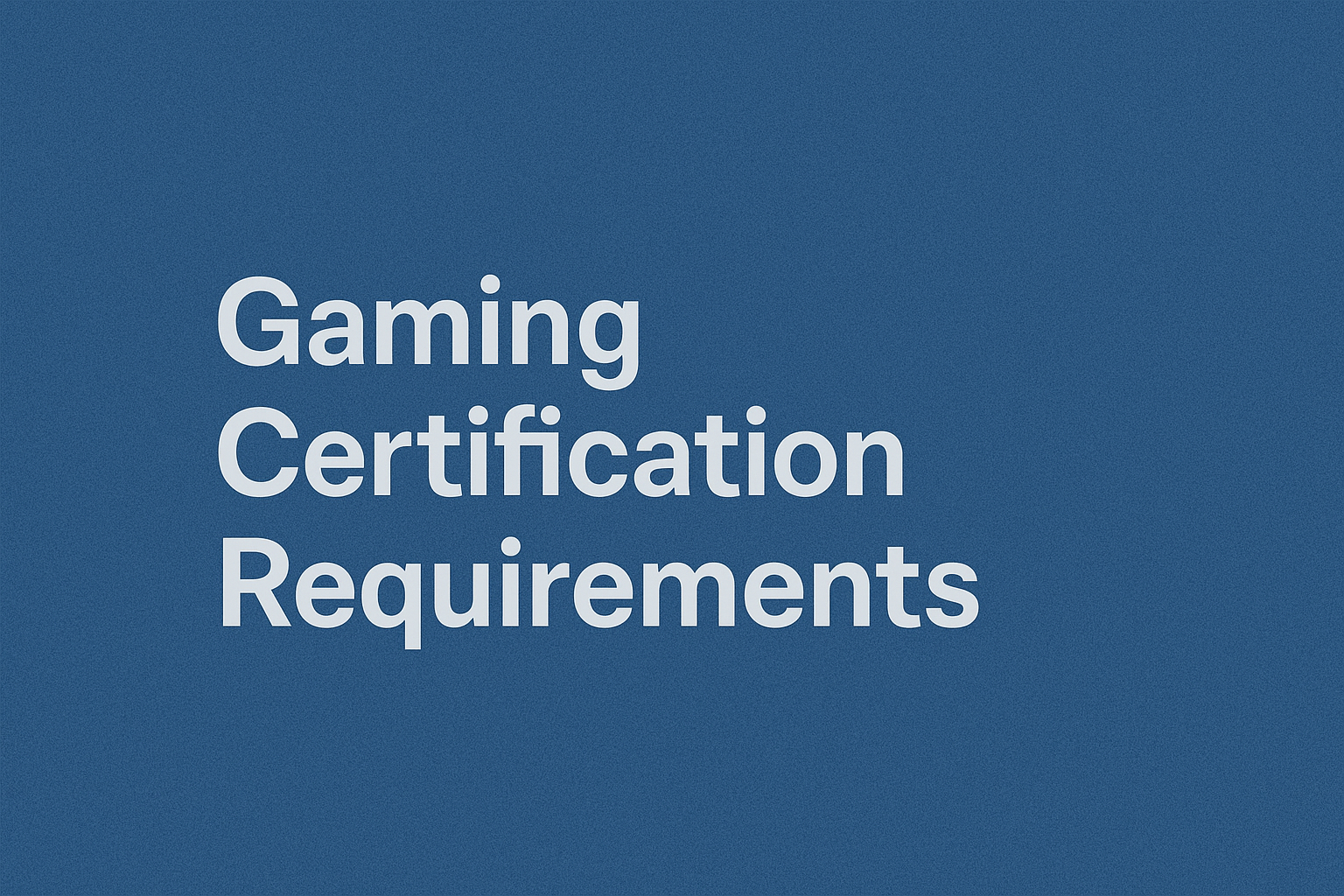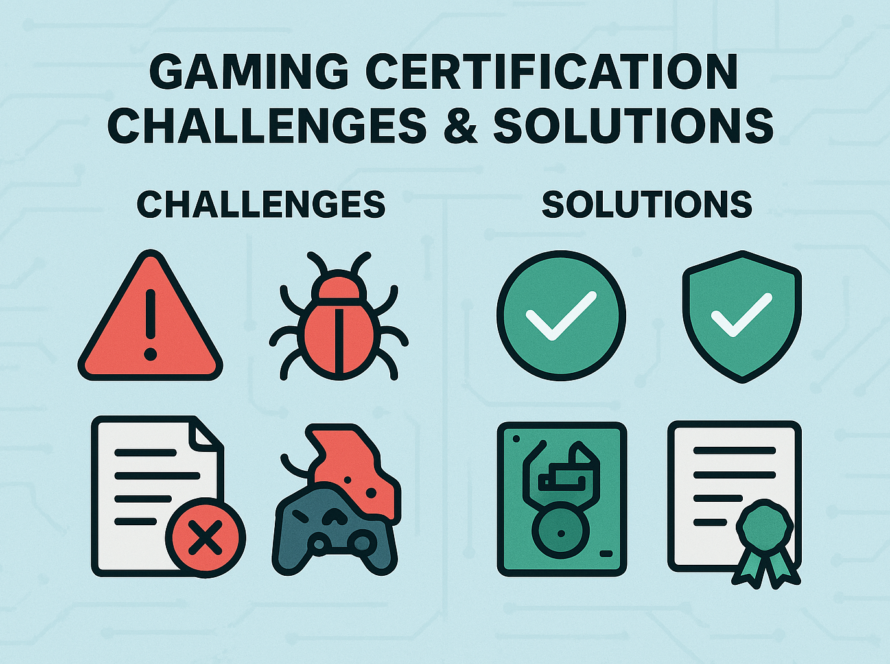In today’s competitive gaming industry, compliance is no longer optional. As games expand to global markets, developers must meet various Gaming Certification Requirements to ensure legal, technical, and operational readiness. Whether you’re developing for mobile, PC, or console, understanding certifications like ISO, GDPR, and others is essential. These standards not only protect user data but also support fair gameplay and help your game pass store reviews faster.
Why Gaming Certification Requirements Matter
Certification ensures your game meets required standards. It’s not just about checking boxes; it proves your game is secure, functional, and respectful of user privacy. Without certification, your game may be rejected by platforms or banned in certain regions. Worse, non-compliance could result in hefty fines or loss of player trust. Therefore, following Gaming Certification Requirements early helps avoid costly delays and builds long-term credibility.
ISO Standards in Gaming Certification Requirements
ISO certifications are globally accepted, making them a strong foundation for compliance. For gaming, two ISO standards stand out. First, ISO/IEC 27001 focuses on information security. It ensures that player data—especially in multiplayer or transaction-heavy games—is properly protected. Second, ISO/IEC 17025 is crucial for testing environments. It guarantees that the processes used to test your game are accurate and reliable. As a result, aligning with these standards boosts both trust and technical integrity.
Understanding GDPR in Gaming Certification Requirements
If your game targets users in the European Union, GDPR compliance becomes mandatory. This is one of the most important Gaming Certification Requirements for international release. GDPR governs how you collect, use, and store personal data. For example, if your game gathers player names, email addresses, or behavior data, you must get clear consent. In addition, you must offer options to view or delete that data. Failing to comply can lead to large fines and even removal from EU app stores.
Global Compliance Beyond ISO and GDPR
Gaming Certification Requirements differ across regions. In the United States, developers must follow COPPA if the game targets children under 13. In South Korea, GRAC regulates game content and age ratings. Meanwhile, in Japan, CERO oversees similar ratings. Furthermore, India is introducing new policies related to online gaming, particularly where payments or user data are involved. Therefore, if you aim to launch globally, you must include regional compliance checks early in your development cycle.
QA’s Role in Meeting Gaming Certification Requirements
Quality assurance is deeply connected to certification. It’s not only about finding bugs but also ensuring that the game meets performance, security, and privacy standards. For example, QA teams validate multiplayer synchronization, payment systems, and data encryption. In many cases, certification bodies review test logs and reports. As a result, your QA strategy must be structured, well-documented, and aligned with compliance goals from the start.
Build Certification into Your Workflow
To succeed with compliance, plan early. At the design stage, identify what user data you will collect. During development, assess which regulations apply. Before launch, audit everything—especially your data handling and QA results. In addition, use tools like CI/CD pipelines and automated security scans to streamline certification. This approach ensures faster approvals and reduces the risk of last-minute issues.
Final Thoughts on Gaming Certification Requirements
Games today are more global and connected than ever. That means Gaming Certification Requirements are critical—not optional. By understanding and applying standards like ISO, GDPR, and local laws, you protect both your users and your product. Moreover, certification helps you build trust, avoid legal issues, and expand faster into new markets. For more insights on this topic, check out our blog on Gaming Software QA and Its Role in Compliance.



